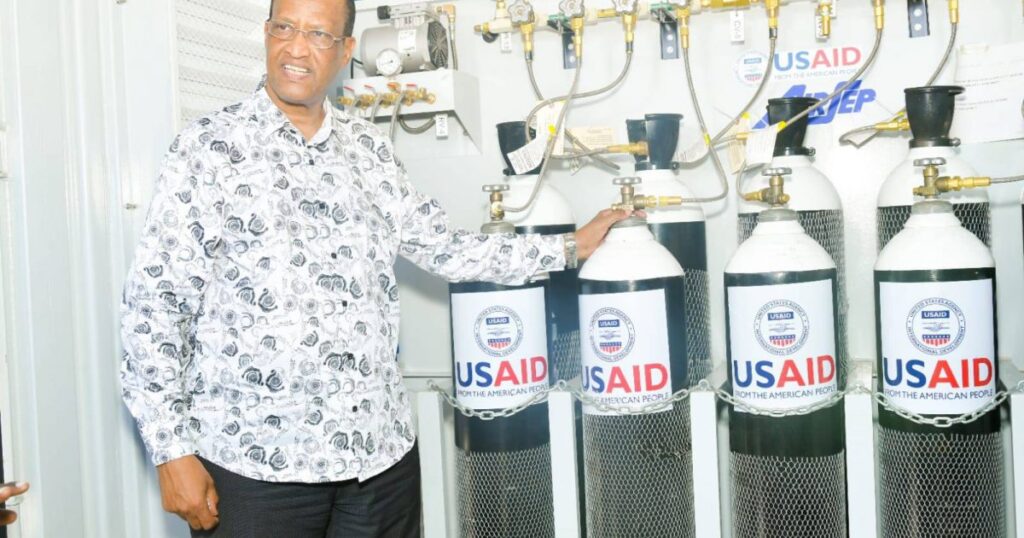Garissa County Launches Its First Oxygen Processing Plant

Garissa County has launched its first oxygen processing plant at the Garissa Teaching and Referral Hospital in its quest to strengthen the healthcare infrastructure, and ease access to affordable health services in the county.
With the launch of the oxygen system yesterday, the county will now save as much as Sh600,000 each month and serve more patients in the county’s most prominent referral hospital.
The 283-litres per minute Pressure Swing Adsorption (PSA) oxygen plant is worth Sh26.8 million installed by the Reaching Impact Saturation and Epidemic Control (RISE) project, funded by the United States Agency for International Development (USAID).
The system can make medical oxygen from the air clean enough to be used by patients in the facility and shared with nearby health facilities. The plant can also fill ten cylinders in 24 hours.
Speaking during the official launch, Garissa governor Nathif Jama said that working with USAID and non-profits like Jhpiego is a strategy of the counties to attract support to augment the county’s investment in building fragile health systems especially in the North Eastern front.
“We hire more health workers, build hospitals but we need support to equip them to a state that can serve the community,” Nathif said.
Garissa County Health executive Ahmednadhir Omar said that the county spent at least Sh245,000 per month to purchase Oxygen from as far as Nairobi, an amount that does not include the transportation, to meet the patient’s needs at Garissa County Referral Hospital alone.
“A former provincial hospital, Garissa Level Five Hospital has a catchment area of 4 million people and attends to patients referred from 126 health facilities in the county and the neighboring Tana River, Kitui, Isiolo and Wajir Counties. The hospital also receives patients from Somalia,” Omar said.
The health executive member further noted that the PSA oxygen generating plant is the most affordable means to deliver the oxygen as compared to storing the oxygen in cylinders that need refilling, which is ten times more expensive, and that is what the county has been using.








